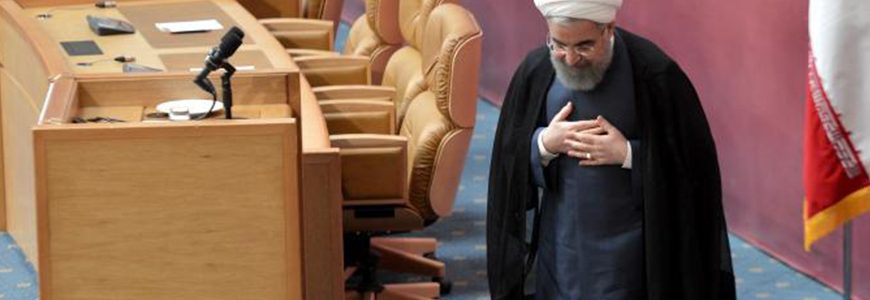
Total’s agreement to re-enter Iran after an absence of five years is a major boon for former US president Barack Obama’s landmark nuclear deal reached in 2015 between Iran and the P5+1. The deal is significant because it signals Total’s
Total’s agreement to re-enter Iran after an absence of five years is a major boon for former US president Barack Obama’s landmark nuclear deal reached in 2015 between Iran and the P5+1. The deal is significant because it signals Total’s confidence in the Iranian market in spite of growing anti-Iranian rhetoric in Washington, Riyadh and Abu Dhabi, which aims to further isolate Iran and actively discourage international businesses from investing in the country. As an energy deal, it is not groundbreaking, and is unlikely to unlock the floodgates and lead to an early rush of international businesses entering Iran. But it does carry with it an opportunity to embolden President Hassan Rouhani’s economic reform agenda and strengthen the hands of the moderates.
For the Rouhani government, this deal comes at a critical juncture. Having been reelected with a renewed mandate to build on the economic opening offered by the nuclear deal, Rouhani has faced domestic criticism from conservative elites and the wider population for overpromising the trickle down effect of investment gains. Rouhani’s economic vision is predicated on the belief that foreign financial and technical investment can help diversify the Iranian economy and promote domestic employment, which remains stubbornly high.

